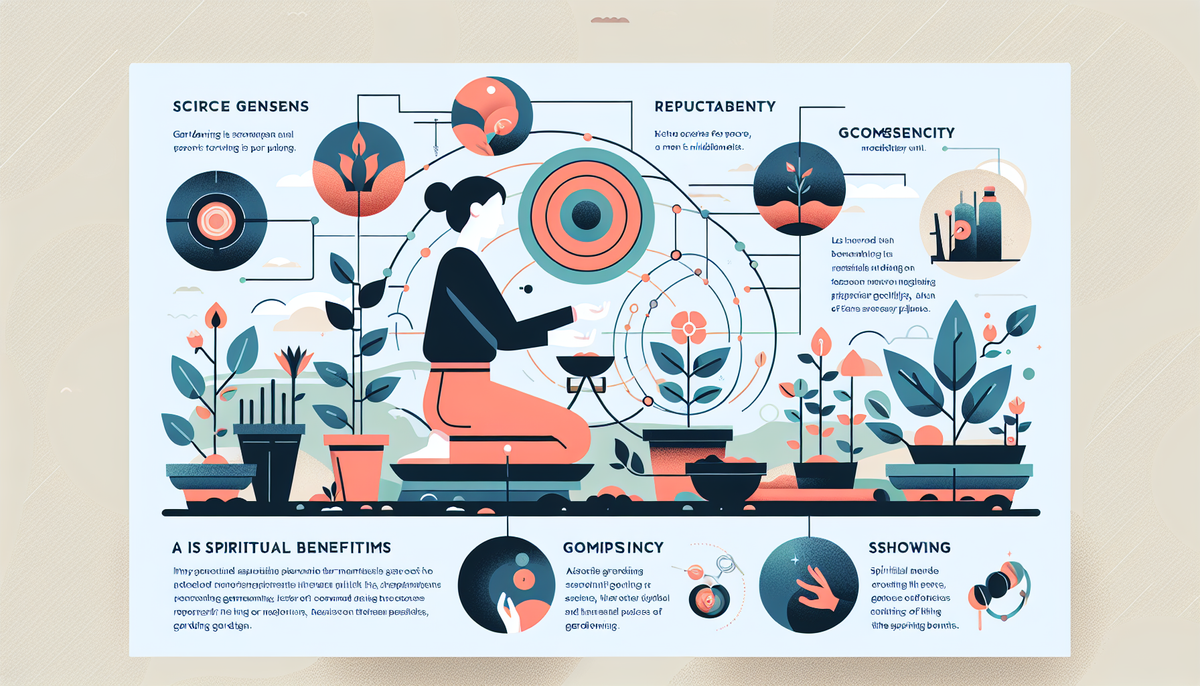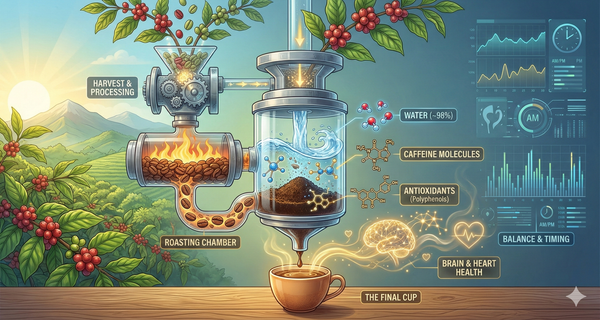Gardening as a Form of Meditation

The Roots of a Calm Mind: Why Gardening is Meditation
In our fast-paced, digitally-driven world, the search for tranquility often leads us to ancient practices like meditation and yoga. Yet, one of the most accessible and profound forms of mindfulness is rooted right in our own backyards. Gardening, often seen as a simple hobby, is a powerful form of meditation that grounds us, calms our minds, and reconnects us with the natural rhythms of life. It’s a practice that engages the whole body and mind, offering a sanctuary from the relentless hum of modern existence. By digging our hands into the earth, we are not just planting seeds; we are cultivating a sense of inner peace and stillness that is increasingly rare and valuable.
Engaging the Senses: A Grounding Experience
Traditional meditation often involves focusing on a single point, like the breath. Gardening expands this concept by inviting us to immerse ourselves in a full sensory experience. It is a practice of radical presence. Feel the rich, cool texture of the soil between your fingers, a direct connection to the living earth. Notice the intricate patterns on a leaf, the vibrant, impossible color of a blooming petal. Inhale the sweet fragrance of jasmine or the earthy scent of damp soil after rain. Listen to the gentle rustling of leaves in the wind and the buzzing of bees as they go about their work. By anchoring our awareness in these sensory details, we pull our minds away from abstract worries and anxieties, and ground ourselves firmly in the present moment. This sensory immersion is the essence of mindfulness, and the garden is its perfect classroom.
The Rhythm of Repetition: Finding Flow in Garden Tasks
Many find meditation challenging because of the perceived need to sit still and silent. Gardening offers a form of active meditation through its many repetitive tasks. The rhythmic motion of pulling weeds, the gentle arc of a watering can, the steady snipping of a pruner—these simple, repeated actions can induce a state of 'flow'. Flow, a concept identified by psychologist Mihaly Csikszentmihalyi, is a state of complete absorption in an activity, where our sense of time fades and our actions become effortless. The mind quiets down, worries recede, and we become one with the task at hand. These rhythmic rituals don't require intense concentration, but just enough focus to keep the mind from wandering, making them a perfect, non-intimidating entry point into a meditative state.
The Science of Serenity: How Nature Heals the Brain
The calming effect of gardening is not just a feeling; it's backed by science. Engaging with nature, even in a small backyard or on a balcony, has been shown to reduce levels of cortisol, the body's primary stress hormone. Simultaneously, studies have found that contact with soil can have antidepressant effects. A specific bacterium found in soil, Mycobacterium vaccae, has been shown to trigger the release of serotonin in the brain—the neurotransmitter responsible for feelings of happiness and well-being. Furthermore, the gentle, non-threatening stimuli of a garden engage our 'soft fascination', a state of effortless attention that helps restore our capacity to focus after periods of intense work. In a very real sense, the garden is a natural pharmacy for the mind.
Your Path to a Mindful Garden: A Practical Guide
Beginning a meditative gardening practice is simpler than you might think. It doesn't require acres of land or years of experience. It's about intention and presence. This guide will help you transform any space into a personal sanctuary for mindful practice, providing you with the tools—both physical and mental—to start your journey toward inner peace through gardening.
Creating Your Sacred Space: No Yard Required
Your meditative garden can be anywhere. If you have a yard, you can designate a small corner as your mindful space. But a collection of pots on a balcony, a window box in a city apartment, or even a few herbs on a sunny windowsill can be just as effective. The key is to create a space that feels intentional and cared for. Choose plants that you find beautiful or fragrant. Consider a small water feature for soothing sound, or a comfortable place to sit. The size of the space is secondary to the quality of attention you bring to it. This is your personal sanctuary, a place you can return to for a few moments of peace each day.
Tools for Tranquility: More Than Just a Trowel
While you'll need basic tools like a trowel, a watering can, and gloves, the most important tools for mindful gardening are mental. First is the tool of 'Intention'. Before you begin, take a moment to set an intention. It could be as simple as, "For the next ten minutes, I will focus only on the garden." Second is 'Non-Judgment'. Let go of the need for your garden to be perfect. A yellowing leaf or a persistent weed is not a failure; it is simply part of the process. Observe without judging. Third is 'Patience'. A garden operates on its own timeline. You cannot rush a seed to sprout or a flower to bloom. Embrace the slow, deliberate pace of nature as an antidote to the rushed pace of modern life.
Five Mindful Gardening Practices to Start Today
1. **Mindful Watering:** As you water your plants, focus completely on the task. Watch how the water darkens the soil. Listen to the sound it makes. Notice how the leaves seem to perk up. Feel the weight of the watering can shift as it empties. 2. **Sensory Tour:** Take one minute to walk through your garden space and engage each of your five senses one by one. What do you see? What do you hear? What do you smell? What can you touch? 3. **Single-Task Weeding:** Dedicate five minutes to weeding one small area. Pay full attention to the feeling of the roots letting go of the soil. Don't think about finishing the whole garden; just focus on the single weed in your hand. 4. **Gratitude Observation:** Find one thing in your garden you are grateful for. A new bud, a visiting butterfly, the resilience of a plant. Hold that feeling of gratitude for a few moments. 5. **Conscious Pruning:** As you trim away dead leaves or branches, think of it as a metaphor for letting go of what no longer serves you in your own life.
Cultivating Deeper Meaning: The Spiritual Side of a Garden
Beyond the immediate benefits of stress reduction, gardening offers a path to deeper spiritual insights and a more meaningful connection with the world around us. It is a practice that teaches profound life lessons through the simple, silent wisdom of the natural world. By tending to a garden, we are invariably tending to our own souls.
Lessons from the Seed: Patience, Resilience, and Growth
A tiny, dormant seed holds the blueprint for a magnificent plant. To witness this transformation is to witness a miracle. Planting a seed requires an act of faith and a surrender to forces beyond our control. We learn patience as we wait for the first sprout to emerge. We learn resilience as we see plants bend in the wind and recover from storms. We learn about the conditions for growth—that just like plants, we too need the right combination of light, water, and nourishment to thrive. The garden becomes a living metaphor for our own personal growth journey.
The Art of Letting Go: Composting the Unnecessary
Every gardener knows that death is an integral part of the garden's life. Leaves fall, flowers fade, and plants reach the end of their cycle. The practice of composting teaches us one of spirituality's most crucial lessons: the transformative power of letting go. By taking what is dead and decaying and turning it into rich, life-giving compost, we participate in a cycle of renewal. We learn that endings are not final, but are necessary for new beginnings. This can be a powerful practice in our own lives, helping us to let go of old habits, past hurts, and limiting beliefs, trusting that they can be transformed into fuel for future growth.
Connecting with the Cycle of Life
In a world that often feels fragmented and isolating, the garden reconnects us to the grand, cyclical nature of life itself. Spring's new growth, summer's abundance, autumn's release, and winter's rest—these seasons remind us that life is a process of constant change and renewal. Tending a garden is a partnership with these powerful forces. It fosters a sense of being part of something much larger than ourselves, a deep, intuitive understanding that we are not separate from nature, but are an intrinsic part of it. This connection is a source of profound comfort, meaning, and belonging.
Conclusion: Your Garden, Your Sanctuary
Gardening is far more than a method for beautifying our surroundings; it is a profound and accessible practice for cultivating inner peace. It is meditation in motion, a therapy prescribed by nature itself. It teaches us patience, resilience, and the art of letting go. It quiets the anxious mind, engages the senses, and reconnects our souls to the life-affirming rhythms of the earth. Whether you have a sprawling yard or a single pot on a windowsill, the opportunity for this connection is available to you. So, dig in. Get your hands dirty. Your garden is waiting to become your sanctuary.




